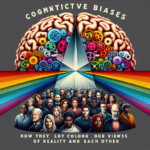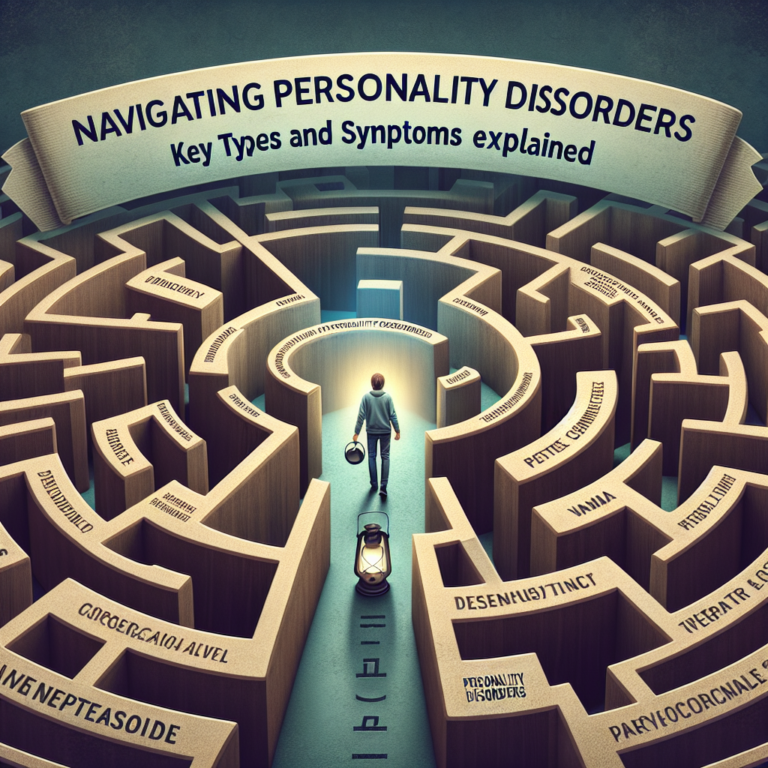Unlocking Your EQ: Simple Strategies to Boost Emotional Intelligence Daily for Lasting Success

Introduction
Technological advancements and rigorous competition have dominated an age where emotional intelligence (EQ) has emerged as a pivotal skill for personal and professional success. Understanding and managing emotions—not only your own but also those of others—can significantly enhance communication, foster better relationships, and drive effective decision-making. As we delve deeper into the concept of “Unlocking Your EQ: Simple Strategies to Boost Emotional Intelligence Daily,” you will discover why honing this essential skill is beneficial and necessary in today’s fast-paced world.
Imagine walking into a meeting where tensions run high. With well-honed emotional intelligence, you can navigate through diffused emotions, create a collaborative environment, and ultimately drive the team’s success. As Daniel Goleman, a leading author in the field, points out, emotional intelligence accounts for 67% of the skills you need to be successful in your job. So, let’s embark on the journey of unlocking your EQ by exploring actionable strategies you can incorporate into your daily life.
Understanding Emotional Intelligence
Defining EQ
Emotional intelligence encompasses the ability to recognize, understand, and manage our own emotions while being aware of the emotions of others. It consists of five key components:
- Self-awareness: Recognizing one’s emotions and their impact.
- Self-regulation: Managing emotions in healthy ways.
- Motivation: Channeling emotions to achieve goals.
- Empathy: Understanding and sharing the feelings of others.
- Social skills: Building relationships and navigating social networks.
The Importance of EQ in Everyday Life
Research indicates that high EQ enhances workplace performance, reduces stress, and improves mental health. People with high emotional intelligence are often more adept at conflict resolution and fostering teamwork. By understanding the importance of unlocking your EQ, it becomes clear that boosting your emotional intelligence daily can lead to better outcomes both personally and professionally.
Strategies for Unlocking Your EQ Daily
1. Practice Mindfulness and Self-Awareness
Mindfulness Techniques:
Integrating mindfulness practices into your daily routine can significantly enhance your self-awareness. Techniques like meditation, deep breathing exercises, and journaling can help you tune into your emotions and reactions. Set aside a few minutes each day to reflect on your feelings.
Case Study: The Power of Mindfulness at Work
A well-known tech company implemented mindfulness training for its employees. The results were astounding—productivity increased by 30%, and employee stress levels decreased significantly. This case exemplifies how practicing mindfulness boosts individual EQ and positively impacts organisational performance.
2. Develop Emotional Regulation Skills
Managing Stress:
Practice stress management techniques to develop emotional regulation skills. These methods include progressive muscle relaxation, visualization, and cognitive restructuring.
Table: Techniques for Emotional Regulation
| Technique | Description | Benefit |
|---|---|---|
| Deep Breathing | Inhale deeply through the nose, exhale slowly. | Reduces anxiety and promotes relaxation. |
| Journaling | Write down thoughts and emotions daily. | Helps organize feelings and gain clarity. |
| Positive Visualization | Picture a successful outcome. | Increases confidence and reduces negative emotions. |
3. Cultivate Empathy
Practice Active Listening:
To boost your empathy, engage in active listening during conversations. This means paying full attention, refraining from interrupting, and responding thoughtfully.
Case Study: Active Listening in Healthcare
A healthcare provider incorporated active listening practices into their patient interactions. As a result, patient satisfaction scores skyrocketed. This case highlights the critical role empathy plays in building trust and improving relationships.
4. Strengthen Social Skills
Building Relationships:
Take time to nurture relationships by setting up coffee chats or informal meetings with colleagues. Use these interactions to understand others’ perspectives and experiences.
Chart: Key Social Skills to Develop
| Social Skill | Action Items | Benefit |
|---|---|---|
| Effective Communication | Use clear language and body language. | Reduces misunderstandings and builds rapport. |
| Conflict Resolution | Approach conflicts with an open mind. | Maintains harmony and strengthens connections. |
| Networking | Attend industry events and engage on social media. | Expands professional relationships. |
5. Set Daily Emotional Goals
Reflect on Emotional Growth:
Each morning, set an emotional goal. For instance, you might aim to maintain a positive attitude throughout the day or practice patience with a difficult colleague. At the end of the day, reflect on your progress.
Conclusion
Unlocking your EQ is a lifelong journey filled with continuous learning and growth. By adopting simple strategies to boost your emotional intelligence daily, you can transform not just your interactions but your overall life. The insights gained from mindfulness, emotional regulation, empathy cultivation, and social skills development will empower you to navigate the complexities of human emotions with grace and effectiveness.
As you embrace these strategies, remember that consistency is key. With time, you’ll find that your enhanced emotional intelligence can lead to more fulfilling relationships, better career opportunities, and a deeper understanding of yourself and others. Begin today—unlock your EQ, and pave the way for a brighter, more emotionally intelligent future.
FAQs on Strategies to Boost Emotional Intelligence Daily
1. How can I practice emotional intelligence daily?
Practicing emotional intelligence (EI) daily involves cultivating awareness of your own emotions, understanding others’ feelings, and responding appropriately in various situations. Here are ways to integrate EI into your routine:
- Self-Reflection: Spend a few minutes each day reflecting on your emotions and reactions. Journaling can help identify patterns and triggers.
- Active Listening: Engage fully in conversations, focusing on understanding others without judgment or interrupting.
- Empathy Practice: Make an effort to consider the perspectives and emotions of others, even in challenging interactions.
- Emotional Regulation: Use techniques like deep breathing or mindfulness to manage stress and stay calm under pressure.
- Gratitude and Positivity: Express appreciation to others and focus on positive aspects of situations to foster stronger relationships.
By consistently practicing these habits, you can enhance your emotional intelligence over time.
2. What are the strategies to improve emotional intelligence?
Improving emotional intelligence requires intentional effort and the development of specific skills. Here are some effective strategies:
- Develop Self-Awareness:
- Practice mindfulness to better recognize and understand your emotions.
- Seek feedback from trusted friends or colleagues to gain insight into how others perceive you.
- Enhance Self-Regulation:
- Avoid impulsive reactions by pausing to assess situations before responding.
- Use stress management techniques like meditation or exercise to maintain emotional balance.
- Build Empathy:
- Try to see situations from others’ perspectives.
- Ask open-ended questions to better understand their feelings and motivations.
- Strengthen Social Skills:
- Work on clear communication and conflict resolution.
- Practice networking and maintaining positive relationships.
- Foster Motivation:
- Set personal goals and align them with your values.
- Celebrate small victories to maintain a sense of accomplishment.
These strategies, when practiced consistently, can lead to significant improvements in emotional intelligence.
3. How can emotional intelligence often be improved?
Emotional intelligence can often be improved through deliberate practice and reflection. Key approaches include:
- Education and Training: Taking courses or workshops on emotional intelligence provides structured learning.
- Mindfulness and Emotional Awareness: Regular mindfulness practices help you become more attuned to your emotions and those of others.
- Role-Playing and Feedback: Practicing real-life scenarios with feedback from peers or mentors can enhance social skills and empathy.
- Reading and Observation: Books, articles, or observing emotionally intelligent individuals can provide valuable insights and examples to emulate.
- Commitment to Personal Growth: A genuine desire to improve, combined with regular effort, ensures sustained progress in emotional intelligence.
By focusing on these areas, anyone can enhance their EI and enjoy better relationships and decision-making.
4. What are the four steps to becoming more emotionally intelligent?
Becoming more emotionally intelligent often involves these four steps:
- Self-Awareness:
- Recognize and understand your emotions, triggers, and how they influence your behavior.
- Use reflective practices like journaling or mindfulness to increase self-awareness.
- Self-Management:
- Develop the ability to regulate your emotions and control impulsive reactions.
- Use techniques like deep breathing, positive reframing, or pausing before responding.
- Social Awareness:
- Cultivate empathy by observing and understanding others’ emotions and perspectives.
- Pay attention to nonverbal cues and context during interactions.
- Relationship Management:
- Use effective communication, conflict resolution, and collaboration to build strong relationships.
- Practice active listening and express appreciation to strengthen connections.
Mastering these steps requires consistent effort, but they are essential for improving both personal and professional relationships.











